It seems there are certain poets who choose their readers. H.D. (aka Hilda Doolittle) chose me. And she never let me go. Picture the scene. Recently turned 20, in my junior year at university, I’d just survived a painful break-up with my very first boyfriend (first date, first kiss, first everything – I was a late-bloomer). My first attempt to escape what had turned into an abusive relationship involved a last-minute decision to fly to San Francisco for the annual meeting of the MLA (Modern Language Association), to attend the conferences and symposiums and lectures and coffee klatches of the academics and scholars I hoped one day to be.
The night before my flight, I dropped in at the weekly midnight sale at my favorite used bookstore to find reading material for the plane. There, amid the dust and an army of felines, high up on the poetry shelf was a little black book with a striking elderly woman on the cover: The Selected Poems of H.D. Something about her face, her eyes, reached out to me. When I opened the book, the titles of nearly every poem referenced the Greek myths, my lifelong passion, which I had been reading obsessively since my Greek grandmother first purchased me the Usborne Illustrated Guide to Greek Myths and Legends at a school book fair in the second grade. “These are our stories,” she said to me. And the portrait of this fierce woman with high cheekbones, white hair and piercing eyes reminded me of my grandmother and insisted I purchase this book. Plus, it was after midnight on a Friday, so everything was 25% off. It was settled. Reading material found. Time to go home and finish packing.
I can still remember settling into my window seat on that flight from Seattle to SF. I opened the book at random and landed on the poem “Eros”:
Where is he taking us now that he has turned back? Where will this take us, this fever, spreading into light? Nothing we have ever felt, nothing we have dreamt, or conjured in the night or fashioned in loneliness, can equal this. Where is he taking us, Eros, now that he has turned back?
The rhythm, the repetition, the sinewy free verse, the feeling of passion and pain and loneliness and uncertainty . . . the combination of sound, image and emotion . . . and so many questions! I was immediately hooked. As I was setting out on my own journey, heartbroken and alone for the first time in months, it seemed H.D., almost like an oracle or a mantis or a high priestess, was speaking directly to me. As the poem continued, these lines shot forth:
Keep love and he wings with his bow, up, mocking us, keep love and he taunts us and escapes. Keep love and he sways apart in another world, outdistancing us. Keep love and he mocks, ah, bitter and sweet, your sweetness is more cruel than your hurt. Honey and salt, fire burst from the rocks to meet fire spilt from Hesperus. Fire darted aloft and met fire, and in that moment love entered us.
The exact moment of falling in love, possibly for the first time, captured in her exquisite lines, lines carved from marble, lines like the ancient papyrus fragments of Sappho herself. I knew these feelings, bitter and sweet, the honey and salt, the repetition, the fire from the rocks and the fire spilt from Hesperus (who exactly was Hesperus?) and I knew that this poet had felt what I felt. And I knew I was not alone.
Later, at the MLA conference (where I happened to be one of the only undergraduates in attendance), one of my favorite areas of the convention center was the book fair, where all of the major academic publishers had booths with numerous books available at a discount. And there she was . . . another black and white photo of that same face, those same sharp cheekbones and piercing eyes, but this time much younger, staring out from H.D.: Collected Poems 1912-1944 at the New Directions/Norton booth. Drawn to that booth like a magnet on the very first day of the conference, I immediately purchased the book on my soon-to-be maxed-out credit card. As the cashier was ringing up my purchase, a mousy, bespectacled young woman with a British accent walked up to the counter and asked “Excuse me, do you have the collected poems of H.D.?” only to become crestfallen with the cashier’s reply of “So sorry. We just sold the last copy.” The last copy. Mine. I almost missed it. I was meant to have this. I scurried away with my purchase, clutching H.D. to my chest. That book has rarely left my side for the last 25 years.
But back to “Eros.” About a year later, I had met my true love, the one who would turn out to be the love of my life, and together we attended the Queer Winter Prom at the local LGBTQ youth center. Someone decided on a lark that I should enter the pageant for Winter Prom King, and for the talent portion I chose to read a favorite poem by my favorite poet. Wearing a white tux with an icy blue bow tie, hair freshly frosted, my new Victorian walking stick tucked in the crux of my arm, I read “Eros” before a judging panel consisting of three beautiful, fabulous, drag queen nuns from The Sisters of Perpetual Indulgence. The poem contains one of my favorite images:
I had thought myself frail; a lamp, shell, ivory or crust of pearl, about to fall shattered, with flame spent.
This voice was myself, when I first met H.D. on that plane ride the year before. That frail little lamp, heartbroken and alone after that painful (but necessary) separation. Flame spent. Then I read aloud the final lines:
What need of a lamp when day lightens us, what need to bind love when love stands with such radiant wings over us? What need— yet to sing love, love must first shatter us.
This was me now. Empowered, a survivor. The drag queen judges, the crowd of queer youth, everyone in the auditorium, including my new beloved, erupted into applause. I ran into his waiting arms for a beautiful kiss. Though I didn’t win the contest (that honor went to some little twink who did a backflip during a Britney Spears song), several people from the crowd, including the heavily-tattooed and pierced head judge in her nun’s habit, came up to me afterwards to thank me for reading that poem. To sing love, I first had to be shattered. Now I, too, had survived heartbreak only to find my true love, my true Eros. And after more than two decades we are now married and still very much in love. At our wedding in 2008, H.D. was among the names we recited on a list of our honored LGBTQ+ ancestors . . . the queer poets and artists and trailblazers who made our union possible. We poured a libation of wine to her then. I hope to honor her again with this humble offering.
The Essential H.D.: A Reading List





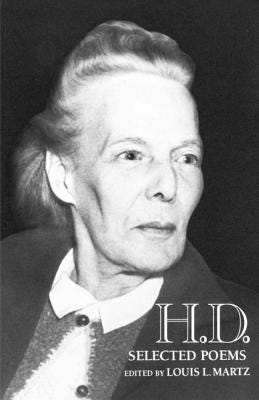
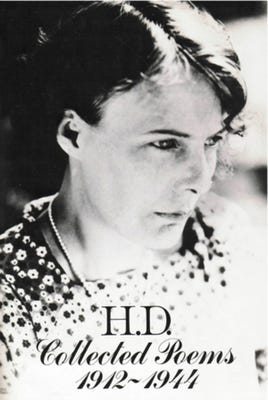

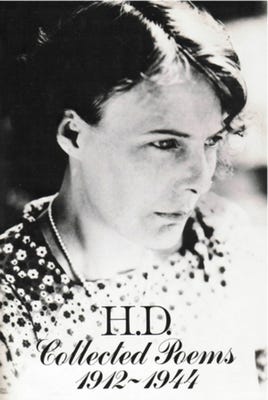
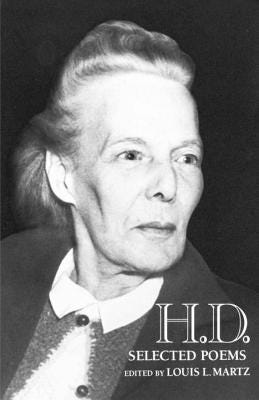


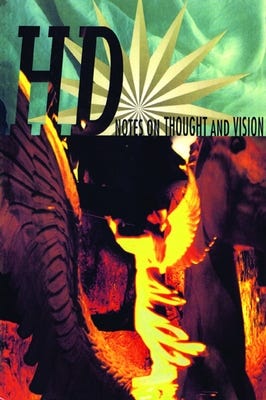


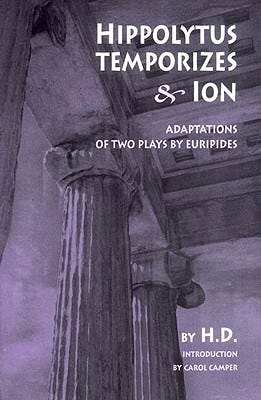
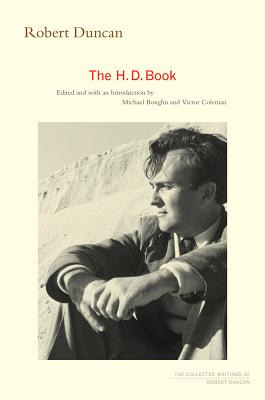
This article is so beautiful it made me cry.